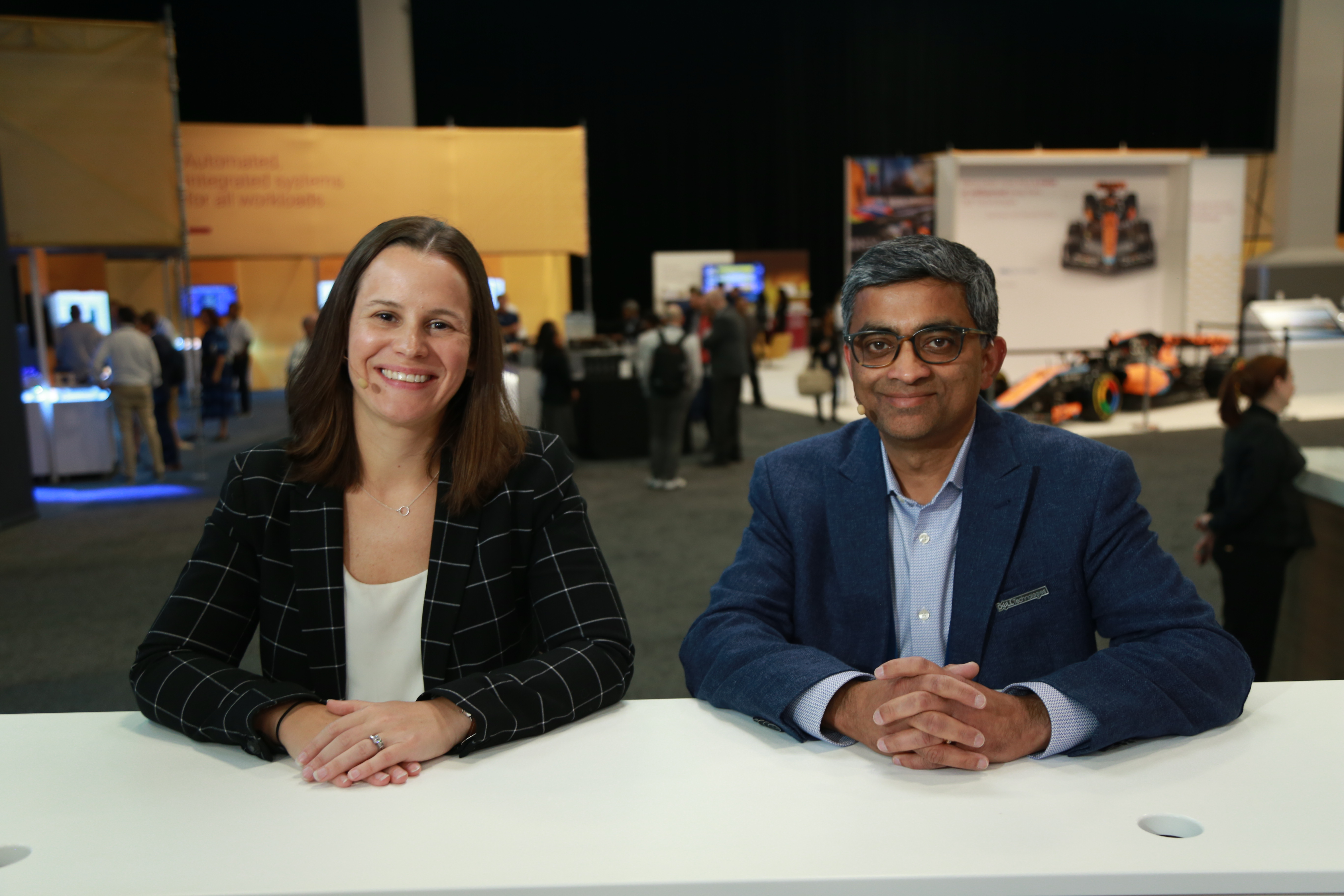 CLOUD
CLOUD
 CLOUD
CLOUD
 CLOUD
CLOUD
As the Dell Technologies World event kicked off on Monday, the unveiling of the Apex Cloud Platforms stole the spotlight, promising to transform cloud adoption and revolutionize on-premises infrastructure.
By embracing a portfolio approach, Dell Technologies Inc. aims to simplify operations, address skills gaps and support customers’ diverse needs. The new Apex Cloud Platforms integrates services from Microsoft Azure, Red Hat Inc. and VMware Inc. to tackle the challenges of cost and complexity, enabling businesses to design deliberate multicloud strategies while optimizing resource allocation.
Through collaborative partnerships and a commitment to customer-centric solutions, Dell paves the way for organizations to become “cloud smart” and achieve seamless transformation, according to Caitlin Gordon (picture, left), vice president of product management, cross platform software and solutions, at Dell Technologies Inc.
“It’s built for what we call our cloud-to-ground strategy — how do we help our customers bring these cloud operating models, these cloud operating environments to their data center and really transform the way they can run their on-premises infrastructure,” she said.
Gordon and Sudhir Srinivasan (right), senior vice president of multicloud and data solutions at Dell, spoke with theCUBE industry analysts Dave Vellante and Lisa Martin at Dell Technologies World, during an exclusive broadcast on theCUBE, SiliconANGLE Media’s livestreaming studio. They discussed the significance of the new Apex Cloud Platforms and its impact on the multicloud landscape. (* Disclosure below.)
Apex Cloud Platforms offers a common set of building blocks, including Dell Technologies infrastructure, common compute, software-defined storage and automated management, simplifying infrastructure while providing vertical optimization and integration with partners. The solution is vertically optimized and vertically integrated with Dell’s partners, including three new Apex Cloud Platforms for Microsoft Azure, Red Hat OpenShift and VMware.
Underscoring Dell’s new release is the shift from building single products to creating a portfolio of products that have common elements and unique features for each partner. This approach supports an open ecosystem of partnerships and helps address customers’ diverse challenges, including skills gaps, according to Srinivasan.
“The hot topic for us is multicloud,” he said. “Out of $100, probably $80 is going into multicloud — Apex Cloud Platforms, Project Alpine. Those are the big ones that we’re focused on.”
The Apex Cloud Platforms enable consistent operations across different cloud environments, empowering businesses to allocate resources efficiently and solve problems at the right place and time, Srinivasan added.
One of the significant challenges faced by businesses in the era of multicloud adoption is the cost and complexity associated with managing multiple cloud environments. The Apex Cloud Platforms aims to provide a solution by enabling organizations to design their multicloud approach deliberately, controlling the blend of on-premises and rented cloud services to optimize costs.
With the shift from a box to a cloud service mentality, Dell’s relationships with its partners have evolved significantly. Gordon emphasized the importance of joint engineering and shared roadmaps, stating, “These are truly jointly engineered offers. This is not just Dell or just Microsoft. How do we come together to bring our customers what they’re asking for?”
The Apex Cloud Platforms exemplify this collaboration, offering organizations choice and simplification across different ecosystems, while addressing their unique needs, Gordon added. The ultimate goal of Apex Cloud Platforms is to help businesses transition from multicloud by default to multicloud by design, ultimately becoming “cloud smart.”
“They want to be able to control the rate at which they’re consuming any of these services … all done with a zero-trust security framework,” Srinivasan added.
Here’s the complete video interview, part of SiliconANGLE’s and theCUBE’s coverage of Dell Technologies World:
(* Disclosure: Dell Technologies Inc. sponsored this segment of theCUBE. Neither Dell nor other sponsors have editorial control over content on theCUBE or SiliconANGLE.)
THANK YOU